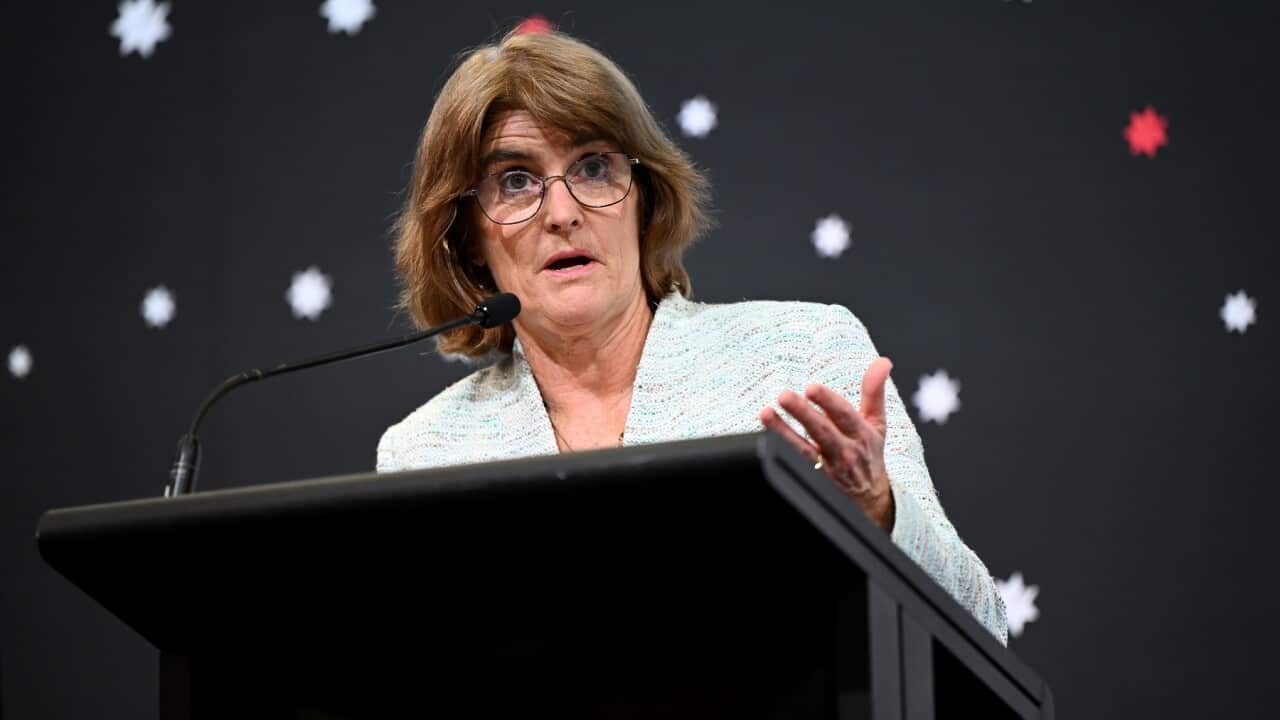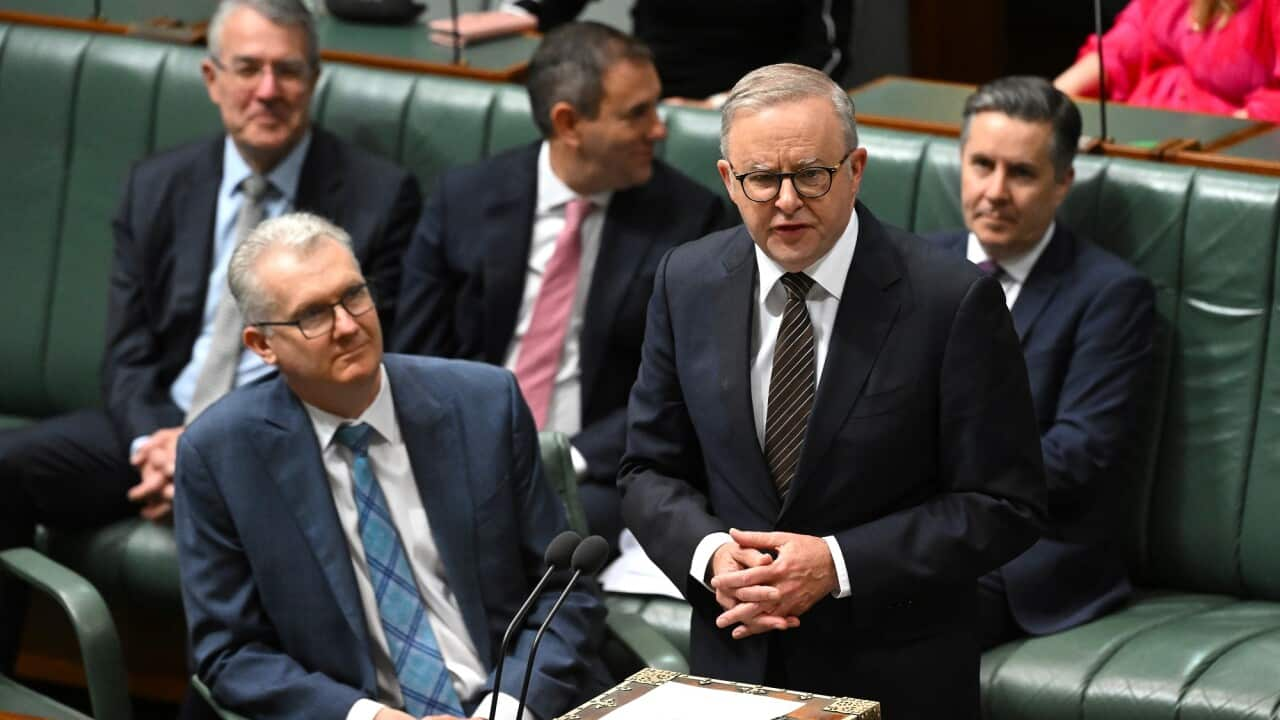TRANSCRIPT
Rachel is a hairdresser who is seeing the effect cost of living pressures are having on her business.
"We're experiencing it in a client - lack of clients and stuff, because I guess everything goes up, inflations, and then obviously you have to drop off some of what you are spending your money on, and one of the first things to go is going to be a personal service."
Retail workers across the country are also seeing a change.
"Particularly mortgages, which is affecting, I guess, discretionary spending, which is what we are. But mental health is also important and people like to come in to a shop and look around, even if it's just to brighten their day up. So, I mean, we are there for many reasons, but in the scheme of things, yeah, it's really tough out there."
These experiences have been reflected in the national accounts released in the first week of September that reveal the economy has barely grown.
The Australian Bureau of Statistics says through the year growth was just one percent.
Outside the pandemic, the annual rate was the lowest since the 1991 recession.
Treasurer Jim Chalmers says cash-strapped households are cutting back on non-essential items to pay for basics.
"What we’re seeing here is weakness in the household’s part of the economy and private investment being offset by the contribution coming from exports and public final demand. The main story in these figures is consumption. Consumption went backwards and discretionary spending fell substantially."
Some experts had been expecting these subdued results on the back of higher interest rates.
But borrowers hoping that cuts will follow the sluggish growth report will be disappointed.
RBA governor Michelle Bullock says the central bank needs to see more progress on inflation.
"But if the economy evolves broadly as anticipated, the board does not expect it will be in a position to cut rates in the near term. But over the past 18 months, goods price inflation has declined substantially as supply disruptions associated with the COVID-19 pandemic and the war in the Ukraine have subsided and global demand for goods has eased."
Michele Bullock says demand for goods and services in the economy is still stronger than the ability to supply them.
She says another interest rate rise is not out of the question, if prices keep increasing.
"If inflation doesn't come down, then it might be that the best medicine is in fact that we have to end up putting more restriction into the economy."
The bank's argument is that it needs to curb high inflation to avoid more pain... which is hitting those on the lowest incomes hardest, particularly young people.
"Ultimately, we'd need to slow the economy down by more which would result in a larger rise in unemployment and a higher risk of recession. The cost of job loss is very high to individual workers, and it leads to persistent earnings losses. This experience is consistent across groups of workers, but job losses tend to be disproportionately borne by some members of our community. The young, those that are less educated, and people on lower incomes."
Michelle Bullock says owner-occupiers with variable-rate loans might also be vulnerable.
"We estimate that around 5 percent are in a particularly challenging situation where the combined total of their essential spending and scheduled mortgage repayments is more than their income."
The figures have been seized on by the Opposition, who are critical of Labor's handling of the economy.
Opposition leader Peter Dutton says the cost of living crisis is essentially their fault.
"We've just got the wrong economic responses from a government that doesn't know what they're doing. This is as bad as it's been since the early 1990s and for 50 years we haven't seen a situation where we've had six consecutive quarters of negative household growth, and that's why families are really hurting."
Stubborn price pressures and the subsequent prolonged wait for cuts remains a sore spot for the federal government, which has been defending its budget management from accusations of spending too much.
It's led to speculation of conflict between Labor and the RBA itself.
Finance Minister Katy Gallagher has brushed aside those rumours.
"Household budgets are smashed, and a contributor to that of course, is those 13 interest rate increases and the bank's got a job to do to get inflation down. But we've also got a job to do to explain what we are seeing in the economy and what we know is happening, and that is that households are under huge pressure."
The RBA governor has also tried to squash talk of tensions.
JOURNO: "The opposition leader has said today that you and the treasurer are at war, are you?"
BULLOCK: "He's doing his job and I'm doing mine. I wouldn't use those sorts of words."
But while the government says it's aware of the financial strain Australians are under - and that they're doing what they can to address it - ordinary Australians say they are desperate for cost of living relief.
voxie 1: "That's $350 worth of groceries there."
voxie 2: "Things have gone beyond a joke."
voxie 3: "We need a miracle."













